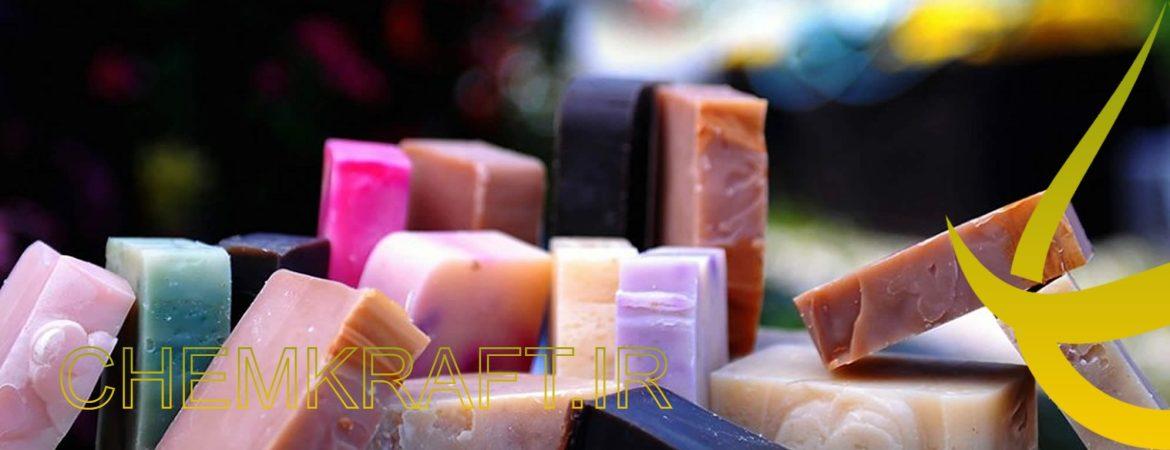A COMPARATIVE ANALYSIS OF NATURAL VS COMMERCIAL SOAPS MADE WITH CAUSTIC SODA
Hossein Moshiri

1. Introduction: Understanding the Importance of Soap in Daily Life
Soap is an essential part of our daily hygiene routine, playing a crucial role in keeping us clean and healthy. From ancient civilizations to modern times, soap has been a staple in societies worldwide. However, with the rise of commercial soaps made with caustic soda and other chemical additives, the demand for natural soaps has also grown. This article aims to provide a comparative analysis of natural soaps versus commercial soaps made with caustic soda. By exploring the origins, ingredients, benefits, manufacturing processes, and environmental impact, as well as assessing their effects on skin health and consumer perception, we can make informed decisions about the soap choices we make. Ultimately, this article aims to shed light on the importance of choosing the right soap for a sustainable and healthy lifestyle.
1. Introduction: Understanding the Importance of Soap in Daily Life
The Historical Significance of Soap
Soap has a long and soapy history, dating back to ancient times. The Babylonians were already getting lathered up with soap around 2800 BC, while the Egyptians and Greeks were busy scrubbing away with soap in the centuries that followed. Soap has truly stood the test of time, proving that cleanliness is not just a passing trend.
Soap’s Role in Personal and Public Hygiene
Soap plays a vital role in maintaining personal and public hygiene. It’s our trusty companion in the battle against bacteria, viruses, and all the other microscopic creatures we’d rather not have lingering on our hands. Washing with soap helps to remove dirt, grime, and germs, reducing the risk of infections and keeping us smelling like a pleasant bouquet of flowers (or something like that).
2. An Overview of Natural Soaps: Origins, Ingredients, and Benefits
The Origins of Natural Soap Making
Before the advent of industrial soap production, soap was made using natural ingredients found in Mother Nature’s pantry. Ancient soap-makers used fats, oils, and alkali substances to create their cleansing concoctions. They may not have had fancy soap molds or botanical extracts back then, but they sure knew how to get things squeaky clean.
Common Ingredients in Natural Soaps
Natural soaps are like a farmer’s market for your skin. They’re packed with nourishing ingredients like natural oils (olive, coconut, shea butter, you name it), essential oils for fragrance, and plant-based additives such as aloe vera and chamomile. It’s like giving your skin a luxurious spa treatment every time you lather up.

https://chemkraft.ir/en/home-page-of-chemkraft/products/chemicals-in-the-industries/caustic-soda/
The Benefits of Using Natural Soaps
Using natural soaps brings a host of benefits to your skin. With their gentle and moisturizing properties, natural soaps help to soothe dryness, reduce irritation, and leave your skin feeling soft and supple. Plus, they often steer clear of harsh chemicals and synthetic fragrances, making them a great choice for those with sensitive skin or environmental concerns.
3. Commercial Soaps: Manufacturing Processes and Chemical Additives
Natural vs Commercial Soaps: The Industrial Soap Production Process
Commercial soap production is a well-oiled machine that churns out bars of cleanliness on a massive scale. It involves a complex process of mixing oils, fats, and caustic substances like caustic soda (more on that later), followed by a series of heating, cooling, and molding steps. It’s like a symphony of soap!
The Role of Chemical Additives in Commercial Soaps
You know all those fancy-sounding ingredients in commercial soaps that you can’t pronounce? Yeah, those are often chemical additives. They’re added to enhance the soap’s fragrance, color, texture, and overall appeal. While some additives are harmless, others can potentially irritate the skin or harm the environment. It’s a bit like playing soap roulette, but with less risk and fewer bubbles.
Potential Health and Environmental Concerns
Commercial soaps have occasionally been caught red-handed with their squeaky-clean image. Some contain ingredients that can strip away your skin’s natural oils and leave you feeling dryer than a desert. Additionally, certain chemical additives, like microbeads, can end up polluting our waterways and harming aquatic life. It’s a sobering reminder to choose our soaps wisely.
See also Caustic Soda in Gold Mining: Extraction and Purification Processes
4. The Role of Caustic Soda in Soap Making: Properties and Safety Considerations
An Introduction to Caustic Soda (Sodium Hydroxide)
Caustic soda, also known as sodium hydroxide, is a key player in soap making. It’s one of the main ingredients used to turn fats and oils into soap through a process called saponification. Caustic soda is a powerful alkali substance that, when handled correctly, can work its soap-making magic.
Natural vs Commercial Soaps: The Chemical Reaction: Saponification Process
When caustic soda meets fats and oils in the presence of water, it sparks a chemical reaction called saponification. This bubbly transformation breaks down the fats and oils into soap molecules and glycerin, resulting in a solid bar of soap. It’s like witnessing a chemical love story unfold, with bubbles and lather as the happily-ever-after.
Safe Handling and Usage of Caustic Soda
Caustic soda may be a potent ingredient, but it’s not something to fear (unless you’re a grease stain or a stubborn stain). When handling caustic soda, it’s essential to take safety precautions, such as wearing protective gear and working in a well-ventilated area. With the right knowledge and precautions, caustic soda can be harnessed safely to create the soap of your dreams. Just remember, don’t go sticking your fingers in it and expecting magical transformations. That’s a job for unicorns, not humans.
5. Comparative Analysis: Evaluating the Environmental Impact of Natural and Commercial Soaps
Life Cycle Assessment: Natural vs Commercial Soap
When it comes to the environmental impact, it’s important to consider the entire life cycle of both natural and commercial soaps. Natural soaps are typically made from plant-based ingredients and use fewer synthetic chemicals. This means that their production and disposal have a lower carbon footprint compared to commercial soaps.
Commercial soaps, on the other hand, are often mass-produced using caustic soda and other synthetic ingredients. The manufacturing process of commercial soaps can contribute to pollution and the release of harmful substances into the environment. Additionally, the packaging of commercial soaps is often excessive and not always eco-friendly.
Sustainability Factors and Eco-Friendliness
Natural soaps have gained popularity due to their sustainability and eco-friendliness. Many natural soap brands focus on using organic and ethically sourced ingredients, which reduces the environmental impact of their production. They also tend to use minimal packaging and opt for recyclable or biodegradable materials.
Commercial soaps, on the other hand, are often produced by large corporations that prioritize mass production and profit. While some commercial soap brands are making efforts to adopt more sustainable practices, many still have a long way to go in terms of reducing their carbon footprint and promoting eco-friendly packaging.
Natural vs Commercial Soaps: Waste Management and Biodegradability
Another important aspect to consider is waste management and biodegradability. Natural soaps, being made from plant-based ingredients, are generally biodegradable. This means that they break down naturally over time, without causing harm to the environment. They are a great choice for those looking to minimize their impact on the planet.
See also Unifying Forces: Syndicates and Unions in the Global Chlor-Alkali Industry
Commercial soaps, on the other hand, often contain synthetic ingredients that may not break down easily. This can contribute to water pollution and harm aquatic life. Additionally, the excessive packaging of commercial soaps adds to the waste generated, further impacting the environment.
6. Skin Health and Hygiene: Assessing the Effects of Natural vs Commercial Soaps
Understanding Skin Types and Common Concerns
Everyone’s skin is unique, and different skin types have different needs. Whether you have dry, oily, sensitive, or combination skin, it’s important to choose a soap that suits your specific skin concerns.
Impact of Natural Soaps on Skin Health
Natural soaps are often gentle on the skin due to their use of natural ingredients. They are less likely to contain harsh chemicals, artificial fragrances, and dyes that can irritate or dry out the skin. Many natural soaps also contain moisturizing ingredients like plant oils and butters, which can help nourish and hydrate the skin.
Natural vs Commercial Soaps: Potential Skin Issues with Commercial Soaps
Commercial soaps, especially those with synthetic ingredients, may cause skin irritation and dryness, especially for individuals with sensitive or dry skin. The added fragrances and chemicals can strip the skin of its natural oils, leading to discomfort and skin problems. It’s important to be mindful of the ingredients in commercial soaps and choose ones that are suitable for your skin type.
7. Consumer Perception and Market Trends: Choosing the Right Soap for Different Needs
Consumer preferences are evolving, with more individuals seeking natural and sustainable products. People are becoming more conscious of the ingredients they put on their skin and the impact their choices have on the environment. Natural soaps are gaining popularity as consumers prioritize products that are free from harful chemicals and have minimal impact on the planet.
Marketing Strategies and Misleading Claims
With the rise in demand for natural soaps, the market has become saturated with various brands making claims about their products. It’s important for consumers to be critical of marketing strategies and look beyond buzzwords like “natural” or “organic.” Reading ingredient lists and researching the brand’s sustainability practices can help make informed choices.
Guidelines for Selecting the Appropriate Soap
When choosing a soap, it’s essential to consider your skin type, personal preferences, and environmental impact. Look for soaps made with natural ingredients and minimal packaging. Consider your skin’s needs and any specific concerns you may have. Reading reviews and seeking recommendations can also be helpful in finding the right soap for you.
8. Conclusion: Making Informed Decisions for a Sustainable and Healthy Lifestyle
When comparing natural and commercial soaps made with caustic soda, it becomes clear that natural soaps have several advantages. They have a lower environmental impact, are often gentler on the skin, and align with the growing consumer demand for sustainable and eco-friendly products. However, each individual’s skin is unique, and personal preferences may vary. By understanding the factors discussed in this article and making informed choices, we can adopt a more sustainable and healthy lifestyle. So go ahead, lather up, and make a positive impact, one soap bar at a time!
See also Sizing Operations in Paper Industries: Different Materials and Environmental Considerations
8. Conclusion: Making Informed Decisions for a Sustainable and Healthy Lifestyle
In conclusion, the comparative analysis of natural soaps versus commercial soaps made with caustic soda highlights the importance of making informed choices for our hygiene routine. Natural soaps, with their origins rooted in traditional soap-making techniques and the use of organic ingredients, offer numerous benefits for both our skin and the environment. While commercial soaps may have their advantages in terms of availability and convenience, they often come with potential health and environmental concerns. By understanding the differences between these soap options, we can prioritize sustainability, promote skin health, and contribute to a healthier planet. It is up to us as consumers to carefully consider the ingredients, manufacturing processes, and long-term impacts of the soaps we choose, ultimately paving the way for a sustainable and healthy lifestyle.
Hossein Moshiri
WA +989124311007
Source: https://chemkraft.ir/en/natural-vs-commercial-soaps/
